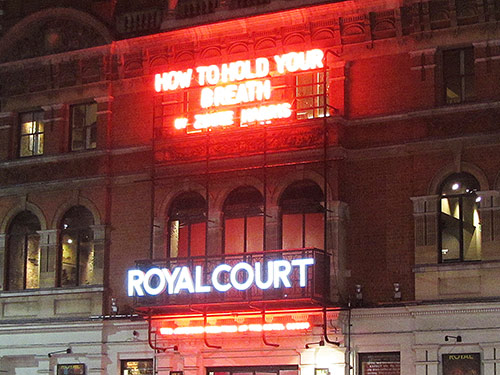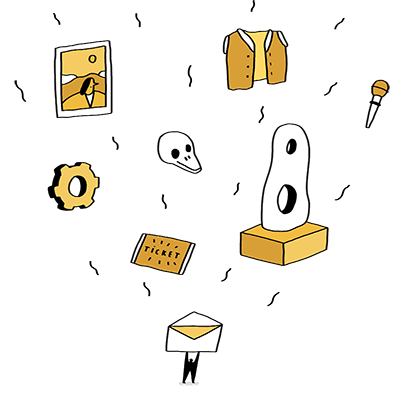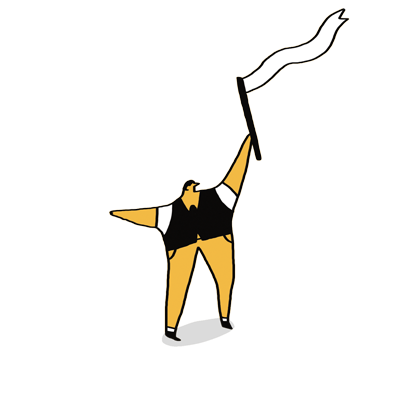In Zinnie Harris’s new Royal Court Play, Maxine Peake is Dana, a woman waking into a crumbling nightmare. Michael went to see if he could make any sense of it all.
How To Hold Your Breath

The morning after the night before sees Dana (Maxine Peake) waking, entangled with her conquest. But the idyll can’t remain, he has to leave, he’s something big in the UN and has to drive to the Adriatic. He takes out his wallet and offers her money; he’s used to paying for sex. It’s a simple misunderstanding straight out of an awkward sit-com but there the simplicity ends.
He explains: he’s a bad man, the devil, people cross the road to avoid him, he’s got ridged nails and black semen. He insists that she takes his money. She refuses and kicks him out. The skewed faustian tragedy is set; the devil is in debt and he’ll do anything to force her to redress that balance.
From there the linear, logical structure begins to decay. The play is so full of metaphor and simile that I’m not sure how much I understood and how much I was adding my own level of confusion.
Dana literally steps into the shoes of her sister Jasmin (compellingly played by Christine Bottomley) before making a plea for an academic grant for something to do with commercialising human interactions… I think.
I’m sure that there’s a crippling debt analogy tied in there somewhere but I couldn’t easily untangle it. Maybe that’s a good thing.
There’s a librarian, dishing out advice on how to… well, by the end, there are books on how to do almost anything (including holding your breath). It’s an interesting literary device that felt like it could have been taken to even more absurd lengths.
I’m not keen on spoilers but let’s say it descended into a dystopian vision of the collapse of European capitalism with the two sisters falling into a literal and metaphorical abyss. Along the way, the tale became so harrowing that several people around me walked out.
Maxine Peake is absolutely mesmerising but even her performance couldn’t keep everyone enthralled. The woman next to me, who’d chatted with her friend through the first hour, put her make-up on during the more fragmented plot-points and nodded off at the climax. Why do people go to the theatre and behave so badly?
Zinnie Harris’s script is brave in tackling some big themes in challenging ways and Vicky Featherstone’s direction cleverly mirrors the plot, gradually dismantling the narrative, turning up the weird and turning down the joy.
Is it a successful play? Not wholly. Does that matter? Not really. It’s interesting, challenging and hard-hitting and Maxine Peake is in it, and I’d pay the ticket price to watch her in just about anything.


